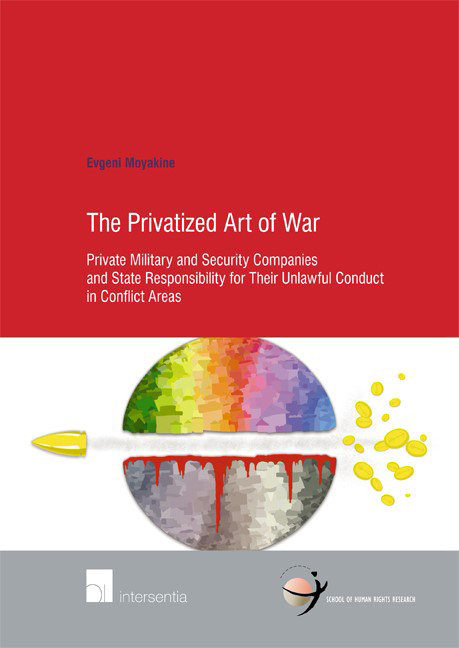 The Privatized Art of War
The Privatized Art of War Published online by Cambridge University Press: 28 November 2017
Who will be responsible for any repressive excesses that the security companies may commit against the civilian population…? Who will take responsibility for any violations of international humanitarian law or human rights they may commit?
Report of the Special Rapporteur on the question of the use of mercenariesINTRODUCTION
Examination of the ILC's Draft Articles on State Responsibility reveals that sole reliance on these provisions is not an effective tool for holding States responsible for the illegal activities committed by PMSCs. In determining State responsibility, the central focus of examination is the behavior of certain government officials acting on their own or in cooperation with others. In principle, the State is responsible for the conduct of those individuals, which exercise “its machinery of power and authority”. The purpose of the attribution on the basis of criteria established by international law is to determine whether a certain conduct, such as the illegal activities performed by individuals, is to be perceived as an act of State. This determination is required due to the fact that the State itself remains responsible for its own acts. The comparison of PMSCs with regular armed forces and the assessment of different types of attribu-tion indicate that the question of attribution of the unlawful conduct of PMSCs is not clear cut. An impression is created that States are less likely to be held responsible for violations of international law committed by private contractors than for crimes committed by their military personnel because the attribution of those violations realized by private actors to States proves to be more problematic. The practice of employing PMSCs by governments seems to indicate that it is not possible to attribute PMSC conduct that falls beyond the scope of State control or is ultra vires to States. The same goes for the attributability of illegal activities of the personnel of private contractors that do not belong to the official State military apparatus or exercise elements of governmental authority while acting off duty.
To save this book to your Kindle, first ensure [email protected] is added to your Approved Personal Document E-mail List under your Personal Document Settings on the Manage Your Content and Devices page of your Amazon account. Then enter the ‘name’ part of your Kindle email address below. Find out more about saving to your Kindle.
Note you can select to save to either the @free.kindle.com or @kindle.com variations. ‘@free.kindle.com’ emails are free but can only be saved to your device when it is connected to wi-fi. ‘@kindle.com’ emails can be delivered even when you are not connected to wi-fi, but note that service fees apply.
Find out more about the Kindle Personal Document Service.
To save content items to your account, please confirm that you agree to abide by our usage policies. If this is the first time you use this feature, you will be asked to authorise Cambridge Core to connect with your account. Find out more about saving content to Dropbox.
To save content items to your account, please confirm that you agree to abide by our usage policies. If this is the first time you use this feature, you will be asked to authorise Cambridge Core to connect with your account. Find out more about saving content to Google Drive.